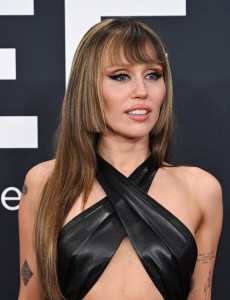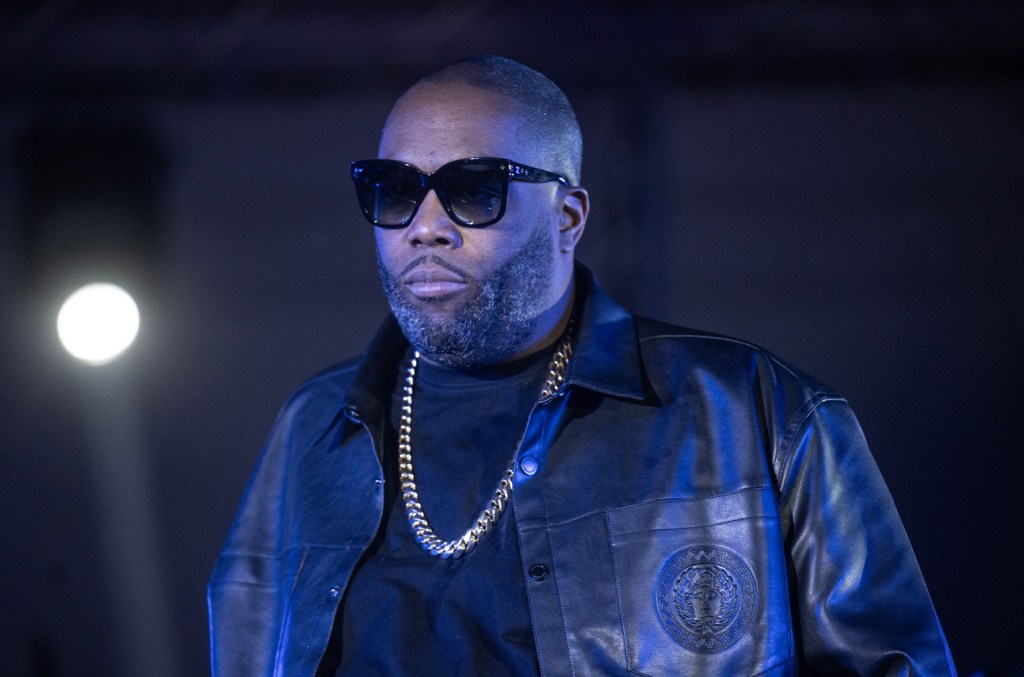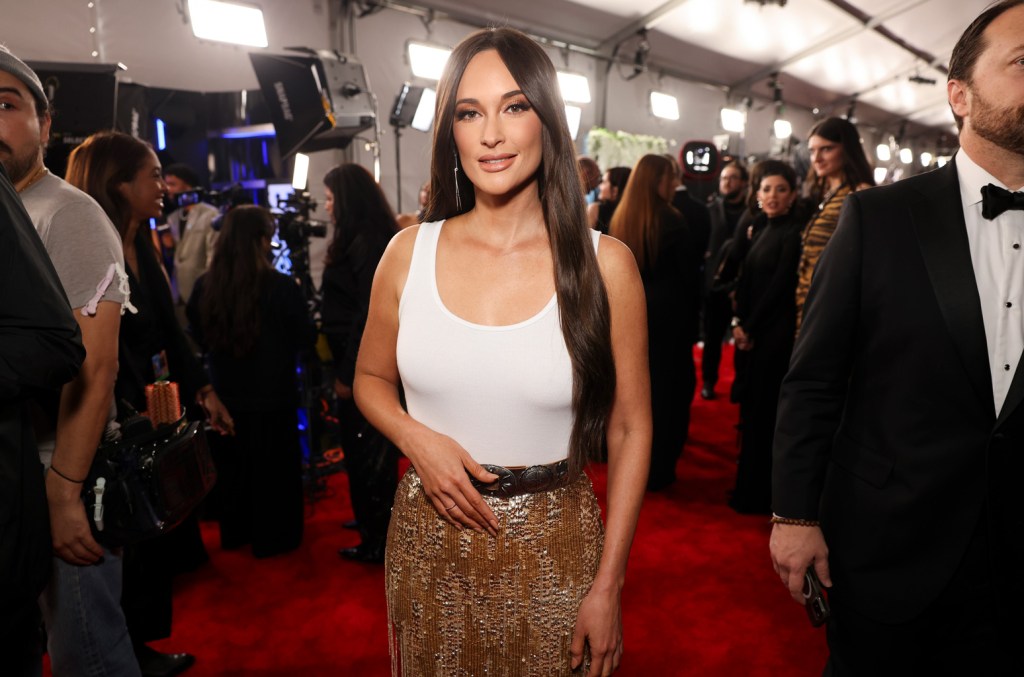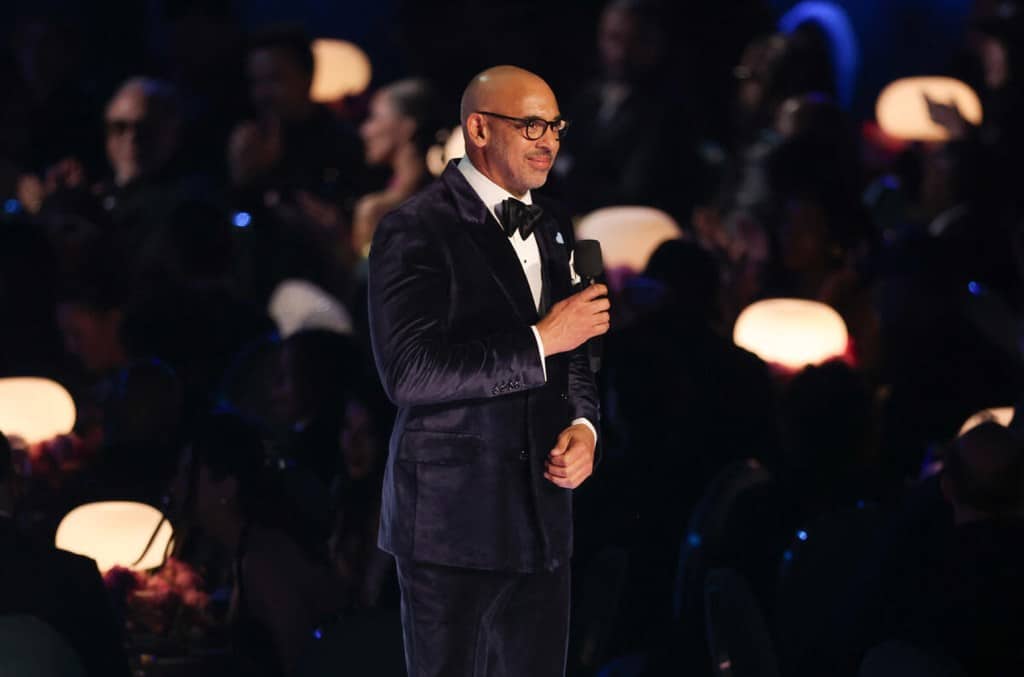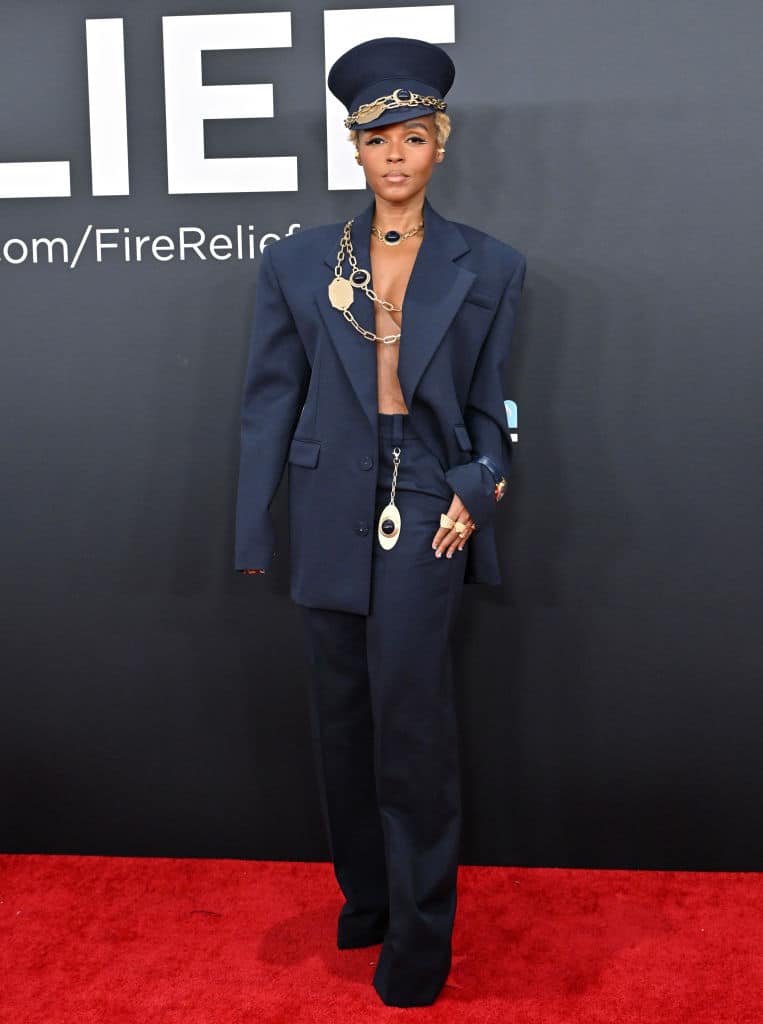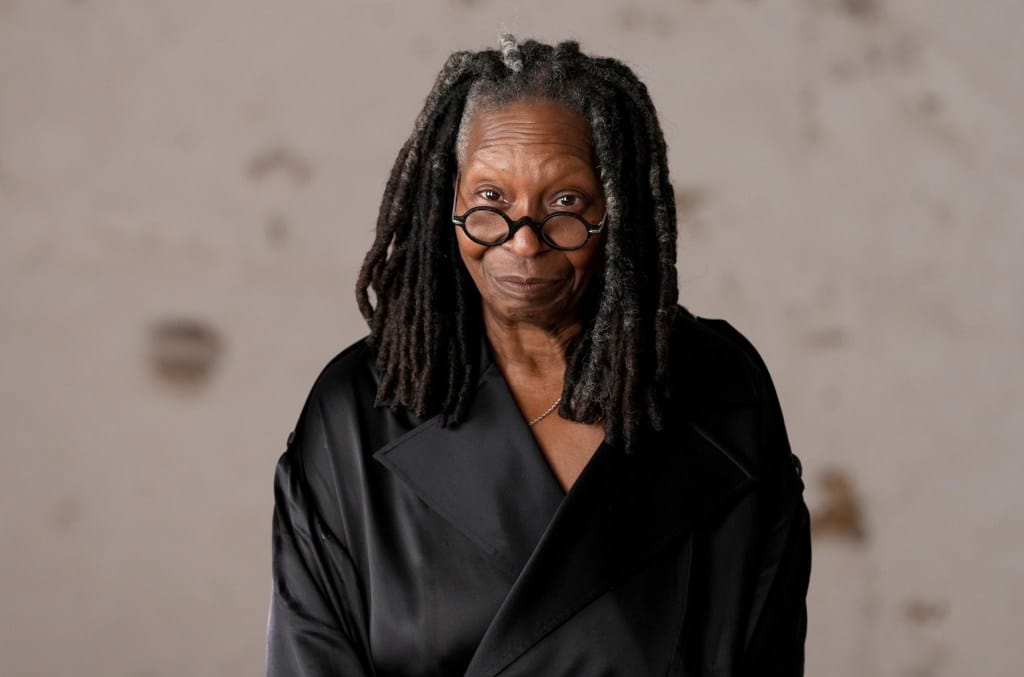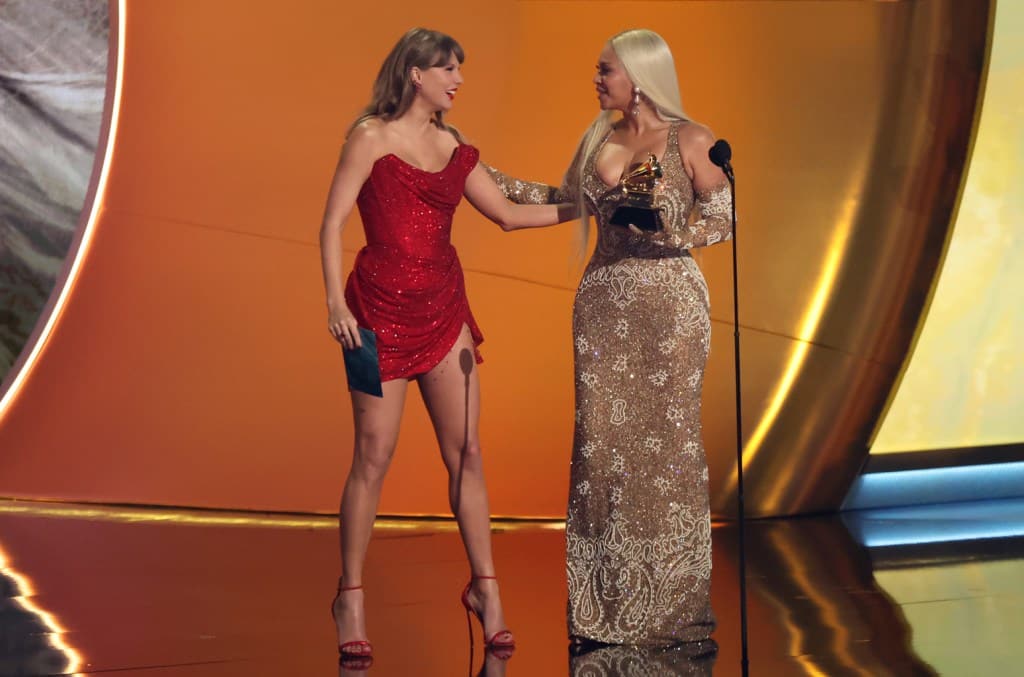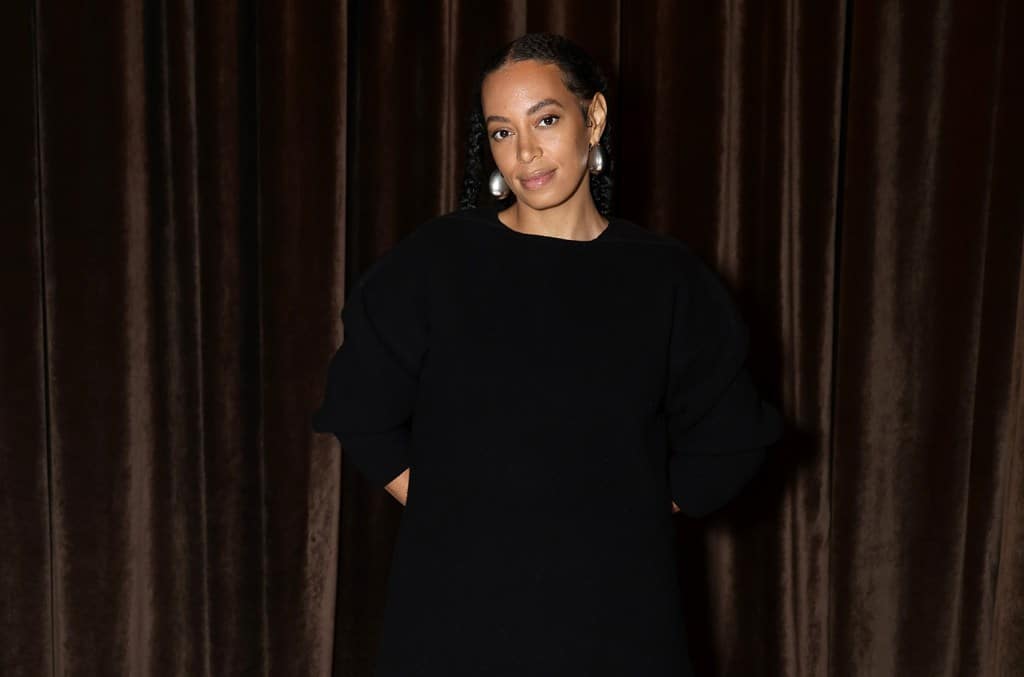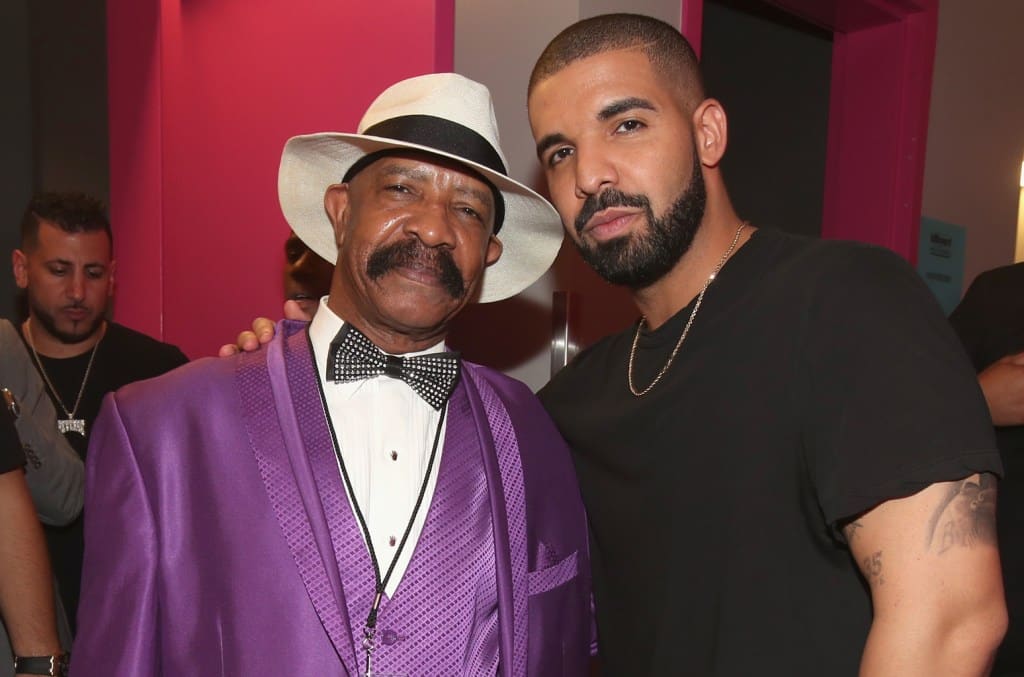Grammys
Page: 7
The Grammys telecast is all about music, but on the red carpet in the hours leading up to the ceremony, it’s all about the fashion. And the 2025 awards were no exception, with the industry’s biggest names all gathering in their most dazzling gowns and suits at Crypto.com Arena on Sunday evening (Feb. 2) before […]
Killer Mike has reportedly filed a lawsuit against the security firm that executed his arrest at the 2024 Grammy Awards in Los Angeles.
Per Rolling Stone, Killer Mike — born Michael Render — claimed that S & S Labor Force attempted to “degrade, embarrass and physically hurt” him during the arrest, which saw the Run The Jewels rapper escorted out of Crypto.com Arena on Feb. 4, 2024.
Filed on Monday (Feb. 3) in Los Angeles County Superior Court, Mike made claims of assault, battery, intentional infliction of emotional distress, and false arrest and imprisonment.
“Defendants wrongly caused plaintiff to be falsely arrested and had him placed in jail during the remainder of the Grammy Awards Ceremony,” the suit reportedly states. “Plaintiff was therefore deprived of the valuable opportunity to be present at the awards ceremony where he was scheduled to appear on primetime television in front of a huge international audience to appear and speak and be recognized on the telecast for his historic achievements.”
Trending on Billboard
S & S Labor Force called Mike’s legal allegations “unfounded” in a statement to Rolling Stone. The security company did not immediately respond to Billboard‘s request for comment.
Shortly after the arrest, sources close to Billboard relayed that the altercation stemmed from an issue with a Grammy Awards security guard over media access credentials outside the Peacock Theater where the pre-show was taking place.
The confrontation took place about an hour after Killer Mike won best rap album for Michael and best rap song for the track “Scientists & Engineers” with André 3000. During the scuffle, Mike allegedly shoved a female security worker, after which LAPD officers reported to the scene and handcuffed the rapper.
Killer Mike was charged with one count of misdemeanor battery and released without bail. However, the Los Angeles City Attorney decided not to pursue the charges.
“Even though plaintiff sought to explain the situation in a respectful way, defendants used physical force to invade plaintiff’s bodily autonomy, using hands to touch plaintiff’s person in a manner both offensive and harmful without any justification or provocation from plaintiff, and to restrain him against his will,” the suit continues.
Killer Mike is seeking damages for the incident.
In an appearance on V103’s Big Tigger Morning Show shortly after the 2024 arrest, Killer Mike downplayed the situation, which he called a “speed bump.” “I won a Grammy,” he said. “We party all night. Shout out to my record label. Ain’t nothing had happened, man. But we winners. That’s it.”
Kacey Musgraves is stopping false rumors in their tracks regarding her reaction to Beyoncé‘s best country album win at the 2025 Grammys. The “Rainbow” singer and Bey were two of several artists nominated for best country album at the awards show Sunday, for Deeper Well and Cowboy Carter, respectively. Ultimately, the prize went to the […]
The Recording Academy raised almost $9 million on Sunday (Feb. 2), the day of the 67th annual Grammy Awards, to aid in relief efforts related to the devastating wildfires that hit the Los Angeles area beginning on Jan. 7. Over the course of the entire Grammy weekend, the Recording Academy and MusiCares raised more than […]

HipHopWired Featured Video
CLOSE
Source: Allen J. Schaben / Getty / Kanye West
Following his ridiculous Grammys red carpet stunt that saw him show up with his butt-naked wife Bianca Censori, Kanye West took to his favorite soapbox, Instagram, to clap back at claims that he and Censori were shown the door.
West or Ye has been active on his Instagram account, and while promoting some new hot ass mess he calls clothing and teasing new dated music, he addressed the issue of whether he and his mannequin of wife were told to leave the Grammys.
In a now-deleted post featuring a photo of Don Lemon, West wrote in the caption, “This the goofball that started the rumor that me and my wife got kicked out the Grammies 3 decades of innovating music and they always K—S like this.”
Lemon quickly responded, “I saw someone on your team who asked me to correct it because it had been reported everywhere. So first of all, get your s*** straight.”
Lemon also posted a video on his Instagram page reporting that West was not kicked out of the Grammys.
The Aftermath of The Stunt
Reports about the incident vary. The New York Post reported that the police removed West and Censori following the stunt for possibly violating the Grammys dress code. The Daily Mail reported that CBS was worried about backlash from advertisers and sent someone to speak with the Chicago rapper, but it denied involving law enforcement.
TMZ and Variety claim that is not the case. They claim that Ye and Censori were not told to leave, but they walked the red carpet and left.
Page Six also claims the stunt was done to recreate West’s Vultures 1 album cover with a lip reader determining Yeezy instructed his wife to “make a scene.”
The “Jesus Walks” crafter is also on the Gram boasting that he “beat the Grammys” and that his wife is the “most Googled person on the planet.”
Someone should tell him mainly because she was naked, and people on the internet are dangerously horny.
He is also currently going on a bizarre rant on X, formerly Twitter, and sharing some interesting Polaroids featuring himself and his wife. The gallery below shows his posts and more reactions.
1. Bruh… What?
4. Rehearsal
5. No lies detected
7. Dee-1 With some Knowledge
HipHopWired Featured Video
Source: Axelle/Bauer-Griffin / Getty
Janelle Monáe, fresh from performing at this year’s Grammy Awards, isn’t one to be shy from speaking their mind. At a Grammys after-party event, Janelle Monáe delivered some shots in the direction of Nelly after the St. Louis rapper performed at President Donald Trump’s inauguration.
As reported by TMZ, Janelle Monáe linked up with Anderson .Paak, who won a Grammy Award alongside his NxWorries partner Knxwledge, at his West Hollywood club, Andys. In a clip obtained by the outfit, the always dazzling Monáe gets into a quick freestyle making quick work of Nelly for aligning himself with Trump.
From TMZ:
Janelle dropped some bars, “I used to like Nelly … but then he performed for Donald Trump. “F**k that [n word.] I don’t give a f**k … Nelly, you sold out. I used to think he was cool … F**k you [n word.] Get a new attitude.”
Monáe and .Paak jammed over a number of tunes, including Nelly’s “Hot In Herre” hit. No word yet if Nelly is going to respond to the jabs but he’s already stated that he’s comfortable with his position.
—
Photo: Getty
Beyoncé’s long-awaited album of the year victory at the 2025 Grammy Awards for Cowboy Carter has garnered plenty of praise across the music industry, but some weren’t as happy to see Queen Bey rack up the award wins, and The View‘s Whoopi Goldberg isn’t letting it slide.
The actress had some words to share after Raymond Arroyo joined Laura Ingraham’s The Ingraham Angle on Fox News on Monday (Feb. 3), following Bey’s history-making night the evening before, and he slammed the Recording Academy for Beyoncé’s country dominance while she had more wins than artists such as Dolly Parton.
Trending on Billboard
“The country artists are not really happy about this,” Arroyo said. “I’m gonna put this in some context Laura: Dolly Parton has 10 Grammys. Frank Sinatra had 11 Grammys. Beyoncé has 35. How is that possibly commensurate with that talent? I mean come on.”
He continued to tell the host: “What people don’t know about the Grammys is everybody votes in every genre. You can vote in up to 20 genres. So basically Lady Gaga’s cat sitter votes for, you know, best reggae and best country album. So that’s why you get this ridiculous outcome that has nothing to do with the country audience or the country musicians.”
Oscar winner Goldberg came to Bey’s defense the next day, scolding the pundit on the Tuesday (Feb. 4) episode of The View.
“Sir, are you aware that you have to be in the music industry to be a Grammy voter? So, the cat sitter can’t just vote,” she fired back. “Are you aware that when the Grammys began in 1959, there were only 28 categories — now there are 94?”
Goldberg added: “The year that Frank Sinatra got six nominations despite having two No. 1 albums, he only won one Grammy that night for his album cover — not even for his singing, for the album cover. Listen, man. You can’t do that. She earned it.”
Arroyo is wrong on some other points. Sinatra won nine competitive Grammys, not 11. Voters cannot vote “in up to 20 genres.” In addition to the six General Field categories, voters can vote in no more than 10 categories spread across no more than three fields.
Beyoncé collected another three wins at the 2025 Grammy Awards, including her first album of the year victory for Cowboy Carter to bring her grand total to 35 Grammys. She also took home victories for best country album and best country/group performance for “II Most Wanted” with Miley Cyrus.
Watch Whoopi Goldberg’s slam the conservative pundit on The View below.
Beyoncé made history Sunday night (Feb. 2) when Cowboy Carter won the Grammy for best country album, making the superstar the first Black artist to win in the category since it was reintroduced in 1995, after a nearly three-decade absence.
Earlier in the evening, she also captured the award for best country duo/group performance for “II Most Wanted” with Miley Cyrus, which was the first time a Black lead artist had won that award since The Pointer Sisters in 1975. Bey capped the evening by winning the night’s biggest prize, album of the year, an honor that had previously eluded her during her 25-year career as a member of Destiny’s Child and a solo artist, despite winning more Grammys than anyone in history.
Many in the country music community are applauding Beyoncé’s country wins and hope they will help lift up other Black artists in country music today, many of whom have been unable to get a foothold on radio or gain much traction within the genre.
Trending on Billboard
Beyoncé’s wins for best country album and album of the year are overall wins for country music, says Big Machine Label Group founder/president/CEO Scott Borchetta. “Beyoncé made a brilliant album that was absolutely worthy of album of the year,” he says. “Every event and moment like this is a move forward and continues to widen the aperture and acceptance of what country music is and can be.”
Willie “Prophet” Stiggers, co-founder of the Black Music Action Coalition, agrees, telling Billboard: “Cowboy Carter pushed country music’s genre redlining into the public zeitgeist – but as Beyoncé herself has mentioned, Black artists and writers have been pushing against Music Row’s gates for decades. Cowboy Carter is such a powerful body of work that it finally broke some long-held barriers. [Recording Academy CEO] Harvey Mason jr. and the academy also deserve acknowledgement for working intentionally to foster a younger, more diverse voting membership, which helped to bring some of those barriers down. However, it’s important that the industry – and Music Row specifically – understand that this moment, this album, is a beginning, not a destination. … ‘Genre’ is still too often used as coded language for race, and it’s far past time for that to change.”
Others see Beyoncé’s win as an isolated victory. “I love that Beyoncé won for best country album and [album of the year] for Cowboy Carter last night at the Grammys, but it’s a win for Beyonce, not necessarily for Black artists in country music,” says Cameo Carlson, CEO of artist development/management services company Mtheory and manager of Black country singer Mickey Guyton, who received three Grammy nominations at the 2022 Grammy Awards but took home none.
“The fact that Beyonce’s album wasn’t even nominated for other Nashville or country-centric awards, like the CMA Awards, is indicative of the work that still needs to be done in Nashville and in country music,” Carlson continues. “The Grammys are a global award for all intents and purpose; the hardcore country awards — and the large body of people that make up the voting bloc for those awards — did not embrace Beyonce or Cowboy Carter, decrying [the album] as ‘not really country’ or making the excuse that she didn’t ‘play the Nashville game’ by coming and investing time in the country music community or in Nashville.”
Beyonce had already rewritten the country rulebook with the album before her Grammy victories. Following its March 29, 2024, release, Cowboy Carter debuted at No. 1 on Billboard’s Top Country Albums chart, making her the first Black woman to reach the pinnacle, dating back to the chart’s January 1964 inception. She also became the first Black woman to top Billboard’s Hot Country Songs chart with “Texas Hold ‘Em,” which stayed at the top for 10 weeks. However, the song peaked at No. 33 on the Country Airplay chart.
While, as Carlson mentions, there had been much talk about the Grammy-winning Cowboy Carter not receiving a CMA Award nomination for album of the year (or any CMA Award nominations), such an occurrence is hardly rare. There have been more than a dozen records that have won the Grammy for best country album since the Recording Academy brought the category back in 1995 that did not receive a CMA nomination for album of the year, much less a win, including Shania Twain’s The Woman in Me (1996), the then-named Dixie Chicks’ Wide Open Spaces (1999) and Tanya Tucker’s While I’m Living (2020). The Grammy voters tend to nominate a wider variety of albums, often including legends who no longer receive commercial airplay, artists who belong to the broader country genre but aren’t in the mainstream, or artists who don’t necessarily, as Carlson said, “play the game.” (In addition to Cowboy Carter, the only country album to win the all-genre Grammy for album of the year and not receive a CMA nomination is The Chicks’ Taking the Long Way in 2006, which came out after much of the country community disavowed the trio for comments Natalie Maines made about then-President George Bush.)
The CMA declined to comment for this story.
Scott Stem, manager for Scotty McCreery at Triple 8 Management, doesn’t see the disparity as a bad thing. “I don’t think all the awards have to be the same — one artist can win the Grammy, one artist can win the CMA Award, one artist can win the ACM Award, and one artist can win the American Music Award,” he says. “It only widens the pot if more artists and their work are recognized instead of it being the same artists on each show.”
Unlike the CMA and ACM Awards, which draw from primarily the country community and may include industry members not involved in the creative process such as radio executives as voters, the 13,000 Grammy voters come from all genres and must be involved in the creative music-making process. Grammy voters are allowed to vote in up to 10 categories across three fields in addition to the General Field categories, meaning that non-country voters could choose to vote in the country field in order to support Beyoncé. Beyoncé won none of the other Grammys she was nominated for in such genre fields as pop, rap or Americana, possibly indicating that non-country voters were inclined to vote for her in country but not spend their limited votes for her in other areas.
Not everyone felt the win was deserved, with some questioning whether the album belonged in the country category at all after Beyoncé herself said in March, “This ain’t a country album, it’s a Beyoncé album.” But there was no denying its homage to country’s Black roots with the inclusion of Black country pioneer Linda Martell and country’s history with the participation of Willie Nelson and Dolly Parton, as well as a nod to its future by including rising Black country artists like Shaboozey, Willie Jones, Brittney Spencer and Reyna Roberts.
Big & Rich’s John Rich posited in a post on X that her win was a result of Sony Music swaying the vote, instead of merit. “Folks are asking me ‘how do music award shows work?’” Rich wrote. “Labels/publishers all have blocks of votes. They make deals with each other ‘you vote for mine, we’ll vote for yours’ type thing. It has ZERO to do with who made the best music, thus, Beyonce with ‘Country album of the year.’ Nice, right? The same thing is true with the CMA’s, ACM’s, Billboard, etc…all work exactly the same. Last night, the Grammy’s [sic] outed themselves in a big way.” [Editor’s note: The Billboard Music Awards are determined solely by Billboard chart performance, not a voting body.]
As the current presidential administration erases diversity, equality and inclusion (DEI) initiatives, many of which came to be following George Floyd’s murder in 2020, some hope Beyoncé’s win will show Nashville that listeners want to hear from more than the white men who dominate country music, especially mainstream country radio.
“Beyoncé will move on and make another killer Beyoncé record in any genre she wants to, while Black and non-white country artists will continue to struggle to be heard and supported,” Carlson says. “Labels and the country infrastructure need to continue to invest in these artists, need to continue to invest in DEI programs, and support programs like Equal Access that are out here doing the work every day to make sure that Beyoncé is only the first Black artist to win a country album of the year Grammy, but certainly not the last.”
Beverly Keel, dean of Middle Tennessee State University’s College of Media and Entertainment, says all eyes will now be on the May 8 ACM Awards, for which first-round voting started Feb. 1 and ends Feb. 18. “I hope Nashville will now fully embrace the project,” Keel says. “This international superstar is taking her wonderful representation of country music around the world, introducing it to people who haven’t listened to the genre before. I hope the next Black female artist doesn’t have to be as successful as Beyoncé to have a big country album. I hope this is the beginning and not an anomaly.”
—Assistance on this story provided by Jessica Nicholson
Solange appreciated Alicia Keys for mentioning her in her speech while Keys accepted the Dr. Dre Global Impact Award at the 2025 Grammys Sunday evening (Feb. 2). “I just want to give big love to my brother Dr. Dre who created a sound that began a movement, and your sound told me that if you’re […]
Drake‘s father Dennis Graham was at the Grammys this weekend with the rest of the music world and was asked about Kendrick Lamar winning record of the year for “Not Like Us,” the diss song that ended the battle between the Compton rapper and Graham’s son. TikTok user @joy.of.everything posted a video of their interaction […]

 State Champ Radio
State Champ Radio 